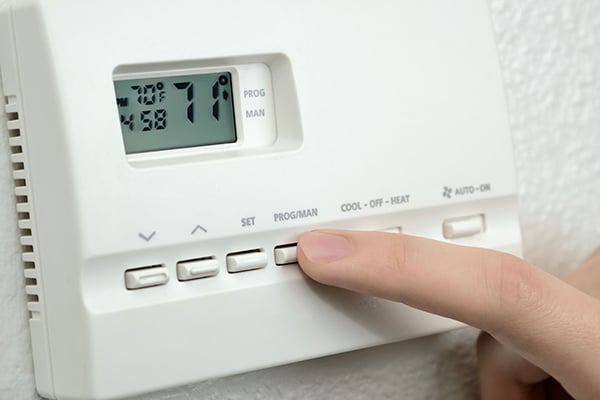Maintain Your Heater to Last Through Winter

Winter can take a toll on your heating system. Learn what signs to look for if you suspect your heater may needs to be serviced or is not working properly.


Winter can take a toll on your heating system. Learn what signs to look for if you suspect your heater may needs to be serviced or is not working properly.
The winter season is upon us, bringing frigid temperatures with it. Regardless of whether you're a fan of cold weather or not, virtually every homeowner agrees that a properly working heater is a must-have.
That's why it's extremely important to take the time to make sure your heater is in good working condition before the cold weather hits. Here is a list of HVAC winter maintenance tips for your heater to ensure that it keeps running smoothly until spring returns
It might seem obvious, but the first step to preparing for colder weather is to make sure the pilot light on your furnace is lit. Without a working pilot light, your entire system will be crippled. As DoItYourself.com puts it, the gas is the fuel, but the pilot light is the ignition and the two must work together.
If you are uncertain about how to check your pilot light, make sure to follow the manufacturer’s directions by referring to your system's user manual or call a professional for assistance.
Another important step when it comes to heating maintenance is to give your system a visual once-over. You’ll want to make sure all wires look intact and that there’s no sign that pests have chewed or otherwise damaged the system's wiring. If you see any damaged wires, contact a licensed electrician immediately.
Take the time to wipe your system down and make sure it’s clear of any dust or debris. You can even use a vacuum with a long nozzle attachment to clean areas of the heater that are harder to reach, such as the fan blower. Also, moving from room to room, and clean your vents and adjust your dampers. Finally, replace any dirty filters and be sure to continue changing them every one to two months afterward.
Thinking about coverage?
Security for your home. Protection for your budget.
Any leaks in your ductwork can keep your heater from operating at peak efficiency. If the seal around the return that feeds directly into your heater is not tight, it can create a backdraft. If necessary, wrap or caulk the joints, as well as the perimeter of your return. Heat-graded foil tape provides an easy fix and can be found at most local hardware stores. You might also consider having your ductwork inspected and cleaned by a professional before you know you'll be needing your heating system on a 24/7 basis.
While you're cleaning your heating system, give your heating unit a practice run and make sure there isn't any smoke or odd noises. If either a sound or soot is present, contact a professional. Smoke or soot deposits could indicate that your burners need adjusting or that your furnace has a cracked heat exchanger. It’s not uncommon for older furnaces to develop such cracks. When this happens, carbon monoxide could leak into the home undetected. At the same time, test the batteries in your home's smoke and carbon monoxide detectors and make sure they too are in good working order.
Finally, if you have the opportunity, give your heating system a trial run. Turn on the furnace and let it run for five to 10 minutes and check to make sure you feel heat emitting from the system. Doing so will ensure your heater will be working as well as new when you need it most.
However you choose to keep your home warm and cozy, you'll also want to protect the investment you've made in your heating system. To further minimize the costs associated with the repair and replacement of your home's HVAC equipment, consider purchasing an American Home Shield® Home Heating Warranty. Our flexible plans can help you protect your home as well as your household budget.
Explore how a heating system protection plan makes sure you’re not left in the cold.

AHS assumes no responsibility, and specifically disclaims all liability, for your use of any and all information contained herein.
Have a plan for your home when things don't go according to plan
Shop Home Warranties